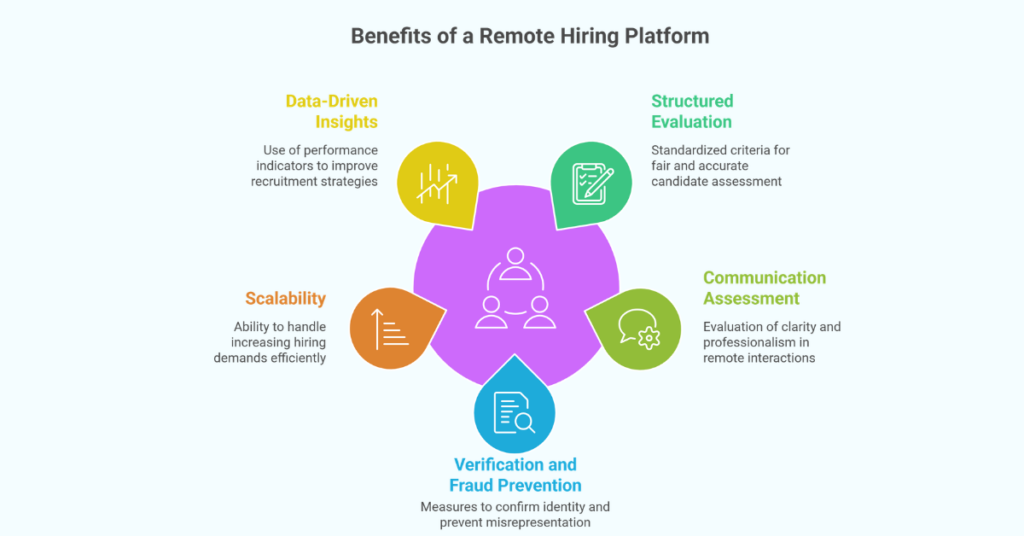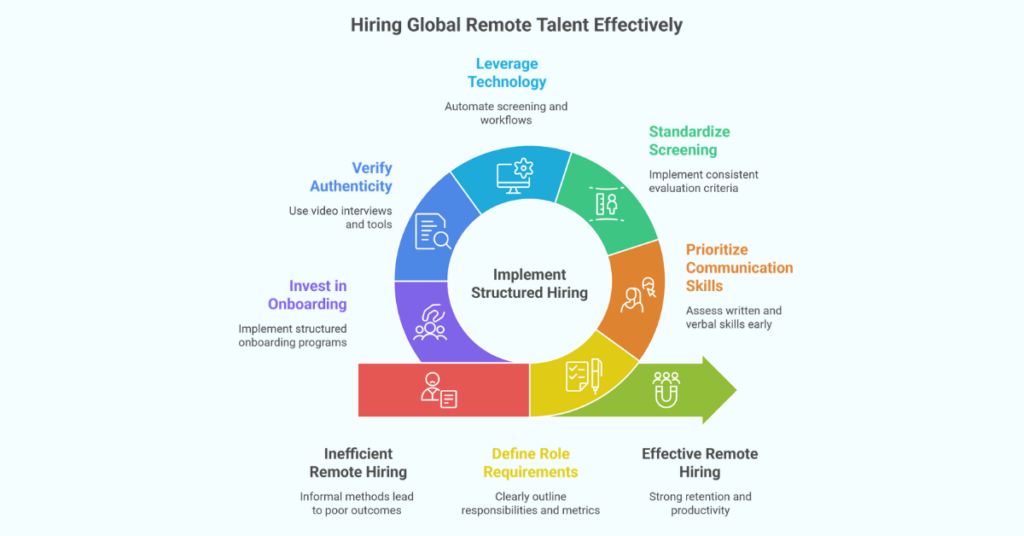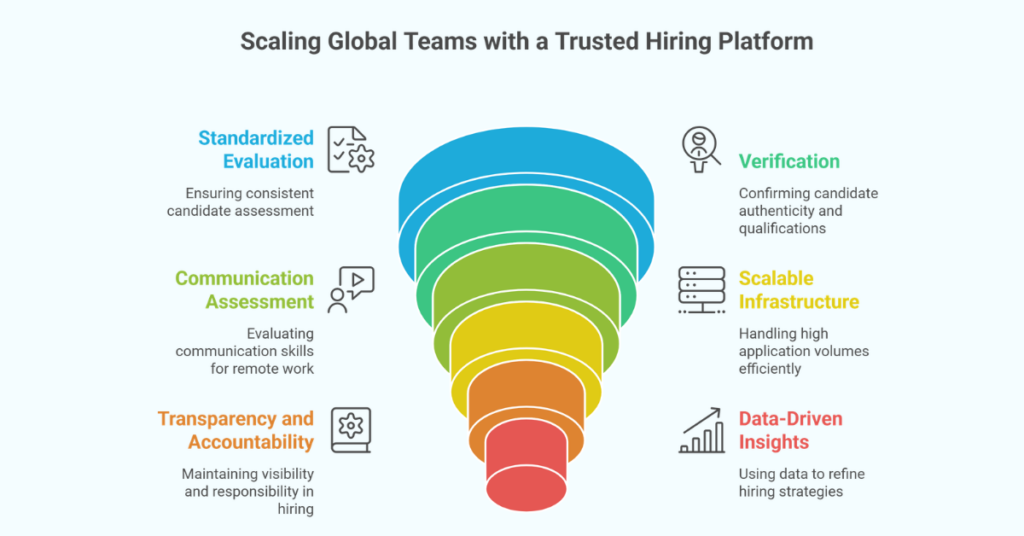As businesses increasingly adopt remote work, the ability to efficiently hire and manage remote teams becomes crucial. This article delves into effective strategies for not only finding remote jobs but also for hiring and leading remote teams successfully. From identifying personal strengths to implementing robust management tools, we’ll explore how to optimize remote work dynamics to benefit both employees and employers.
Finding Remote Jobs:
Securing a remote job involves a clear and targeted approach that aligns your skills and interests with potential opportunities.
1. Identify Your Skills and Interests:
Understanding your strengths and preferences is key to finding a fulfilling remote job.
- Reflect on your skills and how they can be applied remotely. Whether it’s in data entry, digital marketing, or customer support, recognizing your areas of expertise will help you filter job opportunities effectively.
- Consider what tasks you enjoy doing. If you thrive in creative roles, look for positions in content creation or graphic design. This alignment of passion and profession can greatly enhance job satisfaction.
2. Utilize Online Job Boards:
Leveraging specialized job boards can streamline your search for remote opportunities.
- Platforms like FlexJobs, Remote.co, and We Work Remotely provide tailored listings that filter out non-remote roles, saving you time and effort.
- Setting up job alerts can ensure you stay updated on new openings that match your skills and interests without constantly having to check these sites.
3. Network Online:
Building a professional network online is essential for uncovering hidden job opportunities.
- Participate in LinkedIn groups or forums related to remote work. These communities can be a goldmine for advice, job leads, and networking.
- Engaging with content, sharing your expertise, and connecting with like-minded professionals can increase your visibility and chances of finding remote work.
4. Tailor Your Resume and Cover Letter:
Your application materials should reflect your suitability for remote work.
- Emphasize any previous remote work experience and relevant skills in your resume. If you’ve managed projects digitally or used remote work tools, highlight these competencies.
- Align your cover letter with the job description, using keywords to ensure your application resonates with automated screening processes and hiring managers.
Hiring and Managing Remote Teams:
If you’re tasked with building a remote team, your approach to hiring and management should promote clarity, cohesion, and communication.
1. Define Clear Roles and Responsibilities:
Effective remote team management starts with clear expectations.
- Defining precise roles helps team members understand their duties and how their work fits into the broader company objectives.
- Employ tools like Trello or Asana to keep everyone on track with tasks and deadlines, ensuring all team members know their responsibilities and timelines.
2. Use the Right Communication Tools:
Choosing appropriate communication tools is vital for maintaining connectivity and engagement.
- Tools like Slack or Microsoft Teams facilitate seamless communication, enabling real-time discussions and updates.
- Implement regular check-ins through video calls or team meetings to ensure everyone remains aligned and informed.
3. Foster a Strong Team Culture:
Cultivating a positive remote work culture can boost morale and productivity.
- Organize virtual team-building activities that help strengthen relationships and enhance team spirit.
- Celebrate team successes and individual achievements to maintain motivation and a sense of community.
4. Provide Continuous Feedback:
Ongoing feedback is crucial for development and performance enhancement.
- Regular one-on-one meetings allow for personal growth discussions, feedback, and addressing any concerns, helping team members feel supported and valued.
5. Encourage Work-Life Balance:
Promoting a healthy work-life balance is essential in remote settings.
- Advocate for flexible schedules that accommodate various time zones and personal commitments.
- Encourage employees to establish a healthy routine that distinguishes between work time and personal time, reducing burnout.
Solutions by Remote Recruit:
Remote Recruit offers comprehensive solutions that simplify the hiring and management of remote teams for employers, while also providing robust support for job seekers. Employers benefit from our platform’s ability to streamline the recruitment process with tools that enhance candidate screening and team integration. For job seekers, we provide access to a wide range of remote opportunities and resources that prepare them for remote work dynamics.
Conclusion:
Mastering the art of hiring and managing remote teams is essential in today’s digital workplace. By implementing the strategies outlined, employers can build effective, cohesive teams that thrive in a remote setting, while job seekers can enhance their prospects and performance in the virtual job market. Embracing these practices not only improves productivity but also fosters a supportive and engaging remote work environment.




